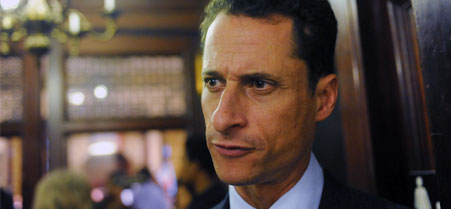Lawmakers compete to protect power grid from hackers
 Rep. Anthony Weiner, D-N.Y., said jurisdiction for cybersecurity legislation rests within the Energy and Commerce panel.
Rep. Anthony Weiner, D-N.Y., said jurisdiction for cybersecurity legislation rests within the Energy and Commerce panel.
House and Senate lawmakers say they hope to avoid acrimonious turf battles in crafting legislation to improve the nation's cybersecurity efforts, even though several bills with competing provisions have been introduced in recent weeks.
House Homeland Security Chairman Bennie Thompson and ranking member Peter King were joined by Senate Homeland Security and Governmental Affairs Chairman Joseph Lieberman Thursday in introducing legislation aimed at protecting electrical grid networks. But a day earlier, House Energy and Commerce Chairman Henry Waxman teamed up with Reps. Edward Markey, D-Mass., and John Barrow, D-Ga., to introduce a bill regulating cybersecurity at electrical power plants.
On Friday, Rep. Anthony Weiner, D-N.Y., said during a hearing that jurisdiction for cybersecurity legislation rests within the Energy and Commerce panel. The cybersecurity bill backed by Thompson and Lieberman would give the Homeland Security Department more authority to regulate electrical-grid cybersecurity, ensuring that their panels would have a major oversight role.
The landscape is likely to become more muddled this week; the Senate Energy and Natural Resources Committee plans a hearing Thursday to consider its own bill to regulate the cybersecurity of the nation's power grid. That bill is more aligned with the Waxman-Markey-Barrow legislation than what Thompson and Lieberman are proposing. Additionally, Senate Commerce Chairman John (Jay) Rockefeller has introduced a bill that would create a White House adviser to manage cybersecurity efforts, while Sen. Thomas Carper, D-Del., has introduced cybersecurity legislation.
At least for now, all sides seem to be holding their fire. "We can't get into a turf battle over this," Lieberman said. He said multiple agencies have critical roles to play, from the Homeland Security Department to the National Security Agency. "I think we should be trying to strengthen each other and not get into turf battles and I think in the end we won't." He said the next significant move will come when President Obama announces the findings and recommendations of a major cybersecurity review. Thompson indicated that he believes lawmakers will find common ground on legislation to protect electrical grid networks. "I think the more the merrier," he said when asked about the Waxman-Markey-Barrow bill.
A spokesman for the Senate Energy and Natural Resources Committee said he expects lawmakers will discuss Thursday how the bills compare and contrast, and how the process for crafting final legislation might proceed. But some aides and industry officials believe Senate and House leaders will need to intervene at some point.
"I fear that there will be jurisdictional battles and bureaucratic turf battles basically carried out of the executive branch and brought over to committees," said Stewart Baker, who served at both the Homeland Security Department and National Security Agency under the administration of former President George W. Bush. "I would hope that doesn't happen because this is really a very serious problem that needs to be addressed, and devoting all of our attention to fighting about the arrangement of the seats at the table is not going to be productive."





